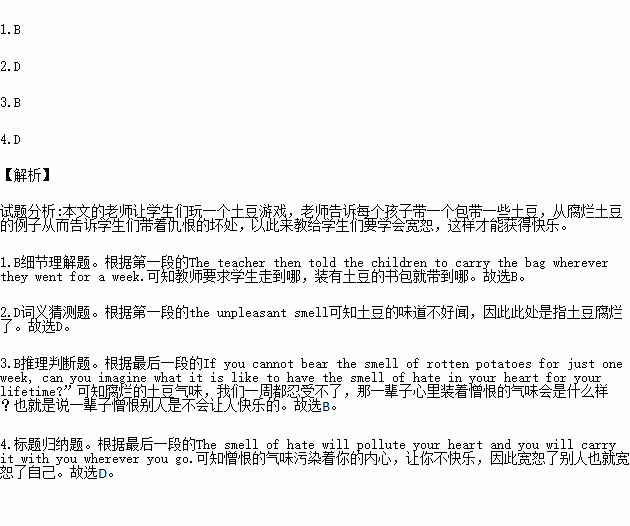题目内容
A teacher let her class play a game. The teacher told each child to bring a bag with some potatoes. Each potato would be given a name of a person that the child hated, so the number of potatoes in his/her bag would depend on the number of people the child hated. Some children had two potatoes, some had three and others had up to five potatoes. The teacher then told the children to carry the bag wherever they went for a week. After a week, the teacher asked, “How did you feel?” The children started complaining about the unpleasant smell coming from the rotten potatoes when they had to carry the heavy and smelly potatoes everywhere they went.
Then the teacher said,” This is the same when you carry your hate for somebody inside your heart. The smell of hate will pollute your heart and you will carry it with you wherever you go. If you cannot bear the smell of rotten potatoes for just one week, can you imagine what it is like to have the smell of hate in your heart for your lifetime?”
1. In the game, the students should _________.
A. keep the bag of potatoes in the classroom
B. carry the bag of potatoes everywhere they go
C. leave the bag of potatoes at home
D. count the bag of potatoes every day
2.The underlined word “rotten” most probably means ___________ in Chinese.
A. delicious B. fresh C. sweet D. bad
3.According to the last paragraph, we can learn that ________.
A. potatoes are very important to the students
B. hating others can make the life unhappy
C. the smell of hate is good for our health
D. the students like to carry the bag of the potatoes
4.Which is the best title of this passage?
A. An interesting game
B. Carry the smelly potatoes
C. The rotten potatoes
D. To excuse others is to excuse yourself.

